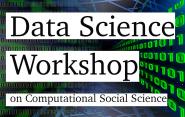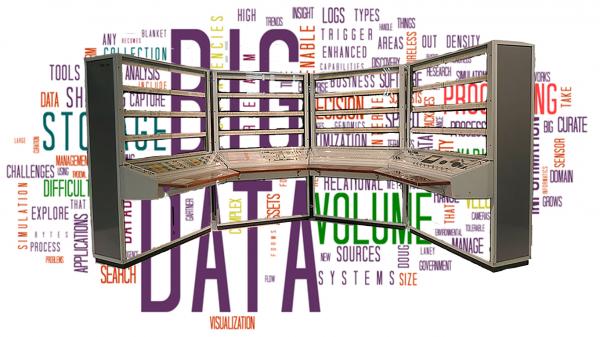What Data Science Can Tell Us About Our World

A daylong conference will cover a wide-range of topics related to computational data analysis, from how languages spread to ways of improving the value of crowdsourcing.
The Data Science Workshop on Computational Social Science takes place Oct. 20. It’s the first of what Dragomir Radev, the A. Bartlett Giamatti Professor of Computer Science, expects will be a regular event.
“We decided we should try to cover different areas of data science,” said Radev, one of the event’s organizers. “We’re starting with computational social science first and then switch to other areas in which data science and computer science have made an impact, for example, digital humanities, medicine, finance, etc.”
Radev said the event is something that likely would not have happened 10 or even five years ago. As the field of data science has picked up speed in recent years, though, it’s become an integral part of numerous fields.
 “It’s very clear that there are people who work in many different areas who also do computer science research, and work in the boundaries of those different fields,” he said. “It’s more and more common these days, especially with social media analyses and experiments and crowdsourcing.”
“It’s very clear that there are people who work in many different areas who also do computer science research, and work in the boundaries of those different fields,” he said. “It’s more and more common these days, especially with social media analyses and experiments and crowdsourcing.”
Yale speakers include Vineet Kumar, assistant professor or marketing, who will discuss strategies for improving the value of crowdsourcing. Brian Scassellati, professor of computer science and of mechanical engineering and materials science, will give a talk on the use of robots to diagnose and treat autism. Claire Bowern, professor of linguistics, will present her work on using computational phylogenetics to understand the spread of the Pama-Nyungan family of Australian languages.
Other speakers include James Shapiro from Brown University, who will talk about how data science can detect a spike in partisanship over the last few decades by analyzing the speech of members of Congress. Brendan O’Connor of the University of Massachusetts, Amherst will discuss the use of natural language processing to analyze the raw text of 15 years of news articles to understand trends in international diplomacy, conflict, and military actions. His research team has also looked at systematic records on police killings of civilians in the U.S.
Jenn Wortman Vaughan, a senior researcher at Microsoft Research, will discuss the importance of understanding the human components that are necessary to machine learning. Ryan Cotterell of Johns Hopkins University will present his work on linguistic typology, which studies the range of structures present in human language, and the search for universal phenomena in different languages.
The workshop begins at 9 a.m. with introductions from Radev and Alan Gerber, Charles C. & Dorathea S. Dilley Professor of Political Science, Institute of Social and Policy Studies, and School of Public Health. It will be held at the Luce Hall, 34 Hillhouse Ave, New Haven.

